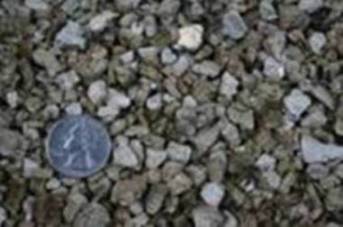Dec . 14, 2024 10:25 Back to list
Developing Advanced Molecular Sieve Adsorbents for Enhanced Separation and Purification Applications
The Role of Molecular Sieve Adsorbents in Modern Applications
Molecular sieves are specialized adsorbent materials that play a critical role in various industrial and laboratory applications. These materials are characterized by their porous structure, which allows them to selectively adsorb molecules based on size and shape. This property makes molecular sieves invaluable in processes such as gas separation, catalytic reactions, and drying operations.
Understanding Molecular Sieves
Molecular sieves are typically aluminosilicate minerals with a well-defined pore structure. The most commonly known types are zeolites, which have a three-dimensional framework of silicate and aluminate tetrahedra. The pore sizes of molecular sieves can be finely tuned by controlling the synthesis conditions, leading to specific pore dimensions that can range from 3 Å to 10 Å or more. This tunability allows for the selective adsorption of small molecules while preventing larger molecules from entering the pores.
The unique ability of molecular sieves to separate molecules based on size is largely attributed to their adsorption mechanism. When a gas mixture passes through a bed of molecular sieve adsorbent, smaller molecules can enter the pores and be held within the structure, while larger molecules are excluded. This selective adsorptive behavior is fundamental in various applications such as air separation and purification processes.
Applications of Molecular Sieves
1. Gas Separation One of the primary uses of molecular sieves is in the separation of gases. In the petrochemical industry, they are employed to separate nitrogen from oxygen in air. By selectively adsorbing nitrogen, molecular sieves facilitate the production of oxygen-enriched air for various applications, including medical use and combustion processes.
molecular sieve adsorbent

2. Drying Agents Molecular sieves are highly effective drying agents due to their ability to adsorb water vapor. In many industrial processes, the presence of moisture can adversely affect product quality and process efficiency. Therefore, molecular sieves are used in drying air and gases in various applications, such as natural gas processing and in the production of plastics.
3. Catalysts and Catalytic Converters In catalytic processes, molecular sieves also serve as support materials or catalysts themselves. Their porous structure allows for a high surface area, enhancing the catalytic activity. For instance, in the petrochemical industry, zeolites are used in catalytic cracking processes to convert heavy hydrocarbons into lighter, more valuable products.
4. Pharmaceutical and Chemical Industries Molecular sieves find applications in the pharmaceutical industry for purifying and isolating active compounds. Their selective adsorption capabilities enable the separation of impurities from desired products, ensuring high purity levels are maintained throughout the production process.
Advantages of Molecular Sieves
The advantages of using molecular sieve adsorbents are numerous. They are highly efficient, capable of achieving low parts per million (ppm) levels of contaminants in gas streams. Their regeneration capability allows for reuse, significantly reducing operating costs. Additionally, molecular sieves are stable across a variety of temperatures and pressures, making them suitable for a wide range of operating conditions.
Conclusion
Molecular sieve adsorbents are indispensable in modern technology, providing effective solutions for gas separation, drying, and various catalytic processes. Their unique ability to selectively adsorb molecules based on size and shape has made them vital in many industries, from petrochemicals to pharmaceuticals. As advancements in material science continue to progress, the versatility and efficiency of molecular sieves are expected to play an even larger role in addressing future challenges in separation and purification processes. By leveraging their unique properties, industries can improve efficiency, reduce waste, and enhance product quality, ultimately contributing to a more sustainable future.
-
Eco-Friendly Granule Covering Agent | Dust & Caking Control
NewsAug.06,2025
-
Fe-C Composite Pellets for BOF: High-Efficiency & Cost-Saving
NewsAug.05,2025
-
Premium Tundish Covering Agents Exporters | High Purity
NewsAug.04,2025
-
Fe-C Composite Pellets for BOF | Efficient & Economical
NewsAug.03,2025
-
Top Tundish Covering Agent Exporters | Premium Quality Solutions
NewsAug.02,2025
-
First Bauxite Exporters | AI-Optimized Supply
NewsAug.01,2025
